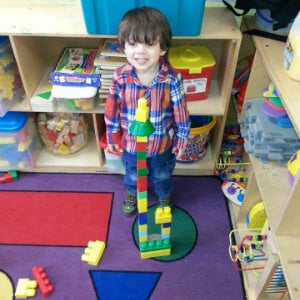 The critical importance of preschool to child development is emphasized in a recent report from the Carolina Abecedarian Project. “Long-term studies have shown not only academic gains but also gains in social-emotional development and something we call executive functioning skills, which included persistence and self-regulation. These are really important skills for success in college and success later in the career,” Steven Hicks of the Department of Education recently told VOXXI.
The critical importance of preschool to child development is emphasized in a recent report from the Carolina Abecedarian Project. “Long-term studies have shown not only academic gains but also gains in social-emotional development and something we call executive functioning skills, which included persistence and self-regulation. These are really important skills for success in college and success later in the career,” Steven Hicks of the Department of Education recently told VOXXI.
Long-Term Benefits of Quality Childcare
Conducted by the Frank Porter Graham Child Development Institute at the University of North Carolina at Chapel Hill, the Abecedarian Project is a long-term scientific study designed to track the potential life-long benefits of early childhood education for economically disadvantaged children. The project has found that children who attended high-quality childcare programs during their toddler and preschool years benefited throughout their lives and were “still reaping the benefits 30 year later,” according a 2012 Time article. Adults who received high-quality childcare were more likely to have graduated from college, more likely to be employed and less likely to have used public assistance.
Head Start Bridges Learning Gap
Preschool and Head Start programs help prepare children for kindergarten. Attending a high-quality Head Start program can help children from economically disadvantaged or immigrant families bridge the learning and language gaps that can put them at a disadvantage when they start kindergarten. For example, Hicks noted that kindergarteners who come from homes where English is the primary language typically score higher in reading and math than children from homes where another language is primary.
The proven long-term advantages of quality early childhood education have the federal government pushing for greater access to high-quality preschool programs like the ones offered at Horizon Education Centers. Click here to find out more about Horizon Education programs.





